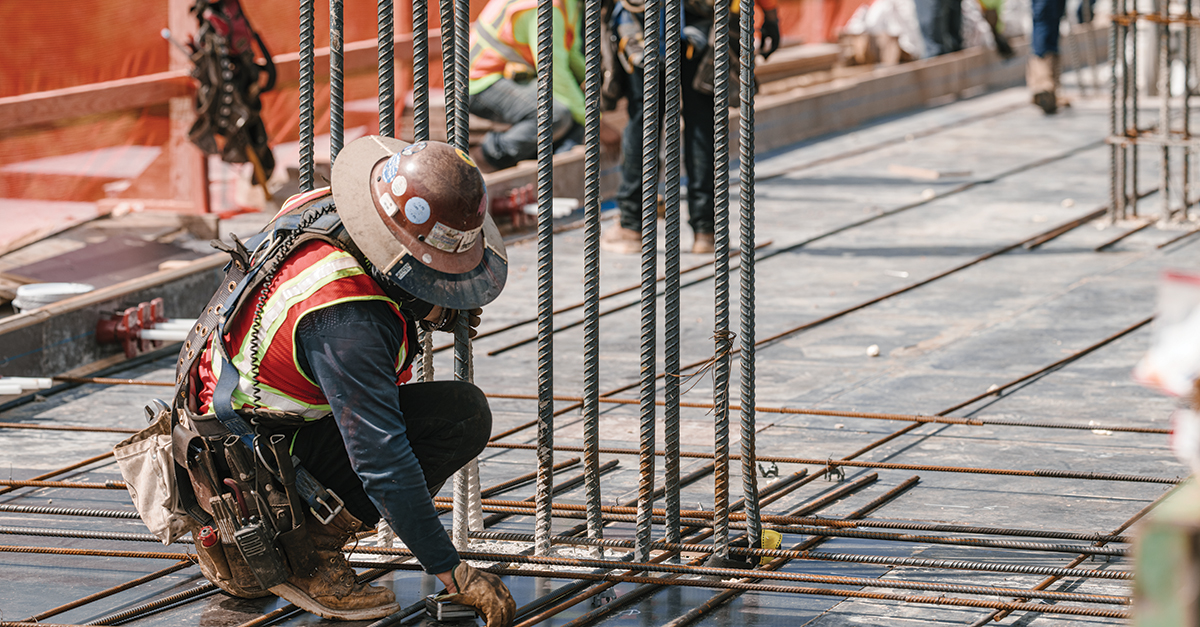5 strategies to avoid costly rework in construction projects

“Rework” it's a dreaded word in the construction industry. No one wants to see time and money wasted fixing mistakes that could have been prevented. According to a McKinsey report, rework can account for a staggering 30% of construction project costs.
So, how can you minimize rework and keep your projects running smoothly? Here are 5 key strategies:
1. Plan like a pro: Invest in detailed pre-construction planning
A solid foundation is essential for any successful project. This means investing time and resources in comprehensive pre-construction planning. This includes:
- Clearly defined scope: Ensure everyone involved has a clear understanding of the project goals, specifications, and deliverables.
- Detailed drawings and specifications: Leave no room for misinterpretation with accurate and up-to-date drawings and specifications.
- Open communication channels: Establish clear communication protocols to ensure everyone is on the same page and any questions or concerns are addressed promptly.
By taking the time to plan thoroughly upfront, you can identify and address potential issues before they become costly rework problems on-site.
2. Embrace collaboration with digital tools
Gone are the days of paper-based plans and fragmented communication. Construction management software like Fieldwire or BIM (Building Information Modeling) can revolutionize collaboration and information sharing. These tools offer:
- Centralized document management: Store all project plans, drawings, specifications, and communication in one easily accessible location.
- Real-time collaboration: Ensure everyone has access to the latest information, reducing the risk of mistakes due to outdated documents.
- Improved communication: Facilitate seamless communication between teams, clients, and subcontractors, minimizing misunderstandings and delays.
By embracing digital collaboration tools, you can streamline workflows, improve communication, and ultimately avoid rework caused by siloed information and outdated documents.
3. Prioritise quality control throughout the project lifecycle
Quality control isn't just an afterthought – it's a continuous process that should be integrated throughout every stage of construction. This includes:
- Regular inspections: Conduct regular inspections to identify and address any potential issues early on, before they snowball into larger problems later.
- Skilled workforce: Invest in a skilled and experienced workforce who understand quality standards and take pride in their work.
- Clear quality control processes: Establish clear and documented quality control procedures to ensure consistency and compliance with project specifications.
By prioritising quality control, you can catch and fix mistakes early, preventing costly rework down the line.
4. Leverage prefabrication for improved accuracy
Prefabrication is a construction technique where elements of a building are manufactured off-site in a controlled environment. This offers several advantages:
- Reduced errors: Controlled environments minimise the risk of errors that can occur on-site due to weather or human factors.
- Improved quality: Prefabricated components can be built to higher quality standards due to factory-controlled processes.
- Faster installation: Prefabricated elements can be quickly assembled on-site, leading to faster project completion times.
By incorporating prefabrication whenever possible, you can improve the accuracy and quality of construction, reducing the need for rework.
5. Learn from experience: Conduct post-project reviews
Every construction project offers valuable lessons learned. Don't let these insights go to waste! Conduct thorough post-construction reviews to identify:
- Areas for improvement: Analyze where mistakes occurred and what could have been done differently to avoid rework.
- Communication gaps: Identify any communication breakdowns that contributed to rework and develop strategies to improve communication for future projects.
- Process inefficiencies: Streamline your processes based on the lessons learned to prevent similar rework issues from happening again.
By taking the time to learn from past experiences, you can continuously improve your construction practices and minimise rework in future projects.
Meeting deadlines and staying on budget
Rework may seem like an inevitable part of construction, but it doesn't have to be. By implementing these 5 strategies, you can significantly reduce rework and keep your projects running smoothly, on time, and within budget. Remember, a proactive approach is key – the more effort you invest in planning, communication, and quality control upfront, the less rework you'll encounter down the road.

 Amy Chouvin •
Amy Chouvin • 

















